Following to the success of the 1st workshop on “Internationalization of H.E” in 2020, HUST continued to collaborate with the DAAD to organize the 2nd workshop on the same topic titled “The implementation of Internationalization of Higher Education in Germany and Vietnam” last December 1&2 in Da Nang. The workshop gathered nearly 50 universities from all across Vietnam and Laos, with more than 90 domestic and international participants.
While in the 1st workshop, the topics of discussion focused on how to build internationalization strategies in HEIs, the workshop of 2022 aimed to share on essential factors to implement effectively the internationalization, emphasizing the role of the “International Cooperation Department (ICD)”. The workshop also analyzed in-depth the structure and necessary resources of an ICD to be able to implement efficiently the internationalization, as well as how to strengthen the connection between ICD and faculties. Moreover, the workshop was an open-minded space for both public and private universities to share their own “typical” internationalization activities, such as student and staff exchange programs, international joint study programs, capacity-building projects… At the roundtable discussion by group, the topics of discussion included: Objectives and structure of an ICD, Necessary resources for operating an ICD, The collaboration between ICD and faculty, Different internationalization dimensions, and Collaboration with External partners.
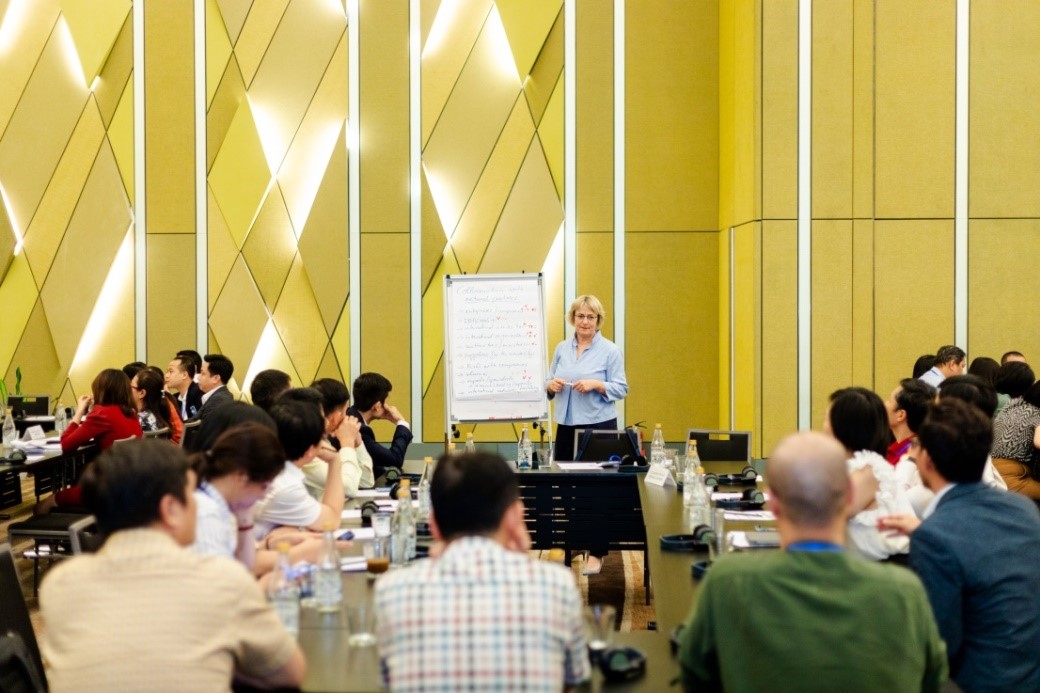
Dr. Andrea Menn – Head of the International Office of University of Applied Sciences Jade – Germany hosted one of the roundtable discussion groups
Speaking at the opening ceremony, Assoc. Prof. Huynh Dang Chinh - Vice President of HUST – shared: “We have gone through two years struggling with COVID-19 and it is now the time for internationalization activities in HEIs to flourish again. The pandemic has had a significant impact on the internationalization of universities all across the world. However, by overcoming the difficulties and challenges, we gained more lessons and experiences to strengthen our internationalization process in the future… With the position as the leading university of science and technology in Vietnam, HUST is pleased to collaborate with DAAD to bring both German and Vietnamese universities a really effective networking space to share and learn from each other about the internationalization implementation experiences”. Prof. Huynh Dang Chinh also emphasized the important role of the "International Cooperation Department" in each university as a bridge between faculties and external partners of the university. Additionally, the ICD helps cooperation activities run smoothly.
Some significant results will be summarized hereinafter:
- Sufficient human and financial resources, especially at the International Offices, are crucial for an ever more extensive internationalization of universities in all their dimensions
- Communication: Good, quick, and informative communication is essential in order to place the topic of “internationalization” in a targeted manner both within a university and in cooperation with external partners.
- Mutual trust is very important, especially while working with partners from other countries and cultures.
- Motivation, especially in the faculties: International cooperation in teaching and research is carried out in the faculties, and the International Offices “only” function as supporting service units. The motivation of teachers and researchers in the faculties for internationalization and their commitment are urgently needed to make teaching and research at universities international.
- 80/20 rule: Some teachers and researchers have little interest in internationalization. Trying to convince this group of maybe 20 percent would involve an enormous amount of effort and would still not promise success. Therefore, one should focus on those who are open to international cooperation.
- The leadership of a university and of the faculties should always be involved, as their support is essential for internationalization measures. If you have their support, projects can often be implemented much more easily.
- The quality of teaching and research is essential for sustainable cooperation with international partners. Quality assurance measures and accreditations are prerequisites for winning partners and cooperating with them in the long term.
- English language skills are another basic requirement for the successful internationalization of universities. This applies in particular to teachers, researchers, and students who study at international universities or want to cooperate with foreign partners.
- Key Performance Indicators (KPI) can and should be used as an important tool to evaluate the success of internationalization measures because internationalization is not an end in itself, but primarily serves to improve the quality of teaching and research.
- Expectation management for inbound mobility: The different motivations for studying in Vietnam should be taken into account: While students from neighboring countries (mainly Cambodia and Laos) expect better study opportunities in Vietnam than at home, students from highly developed countries primarily combine an intercultural experience with a study visit to Vietnam, whereby credits must be recognized in the home country so that there is no loss of time during their studies.
Finally: Internationalisation is an institutional imperative for the entire university and a cross-sectional task across all areas of a university.
Mr Stefan Hase-Bergen – Director of DAAD Hanoi Office and HUST delegation, headed by Assoc. Prof. Huynh Dang Chinh
EAO-HUST
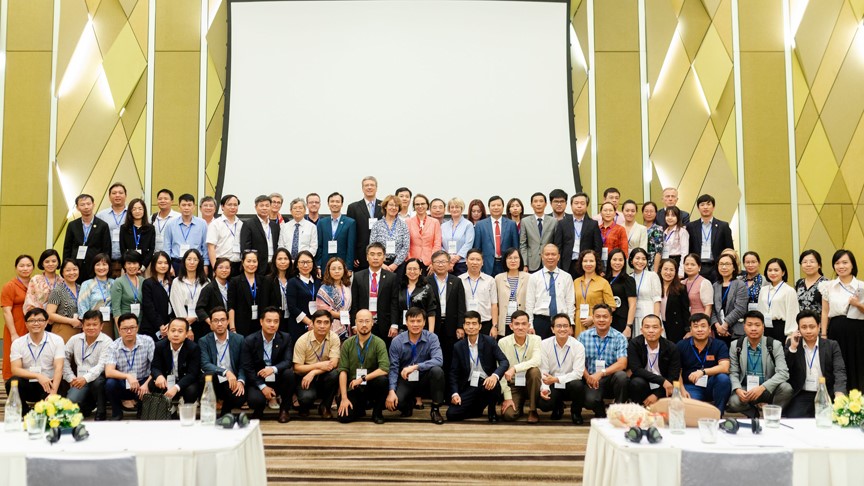

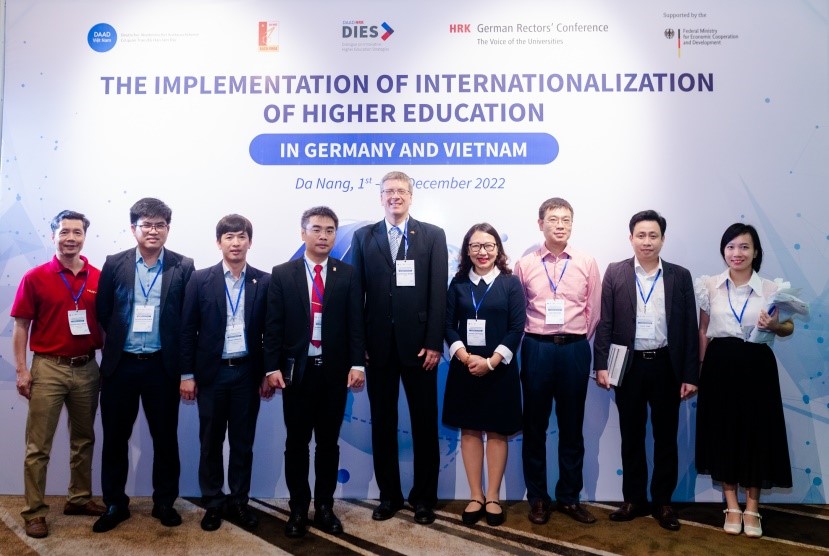
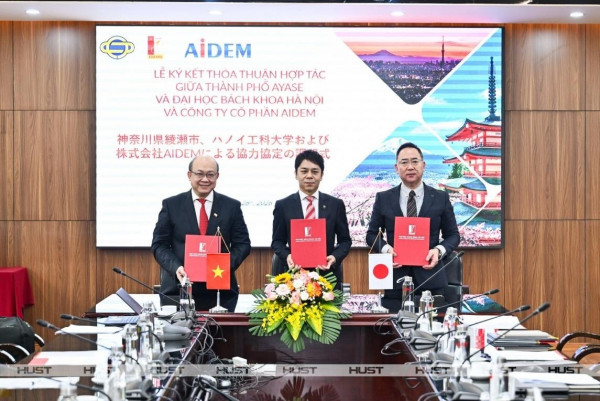 Hanoi University of Science and Technology Partners with...
Hanoi University of Science and Technology Partners with...
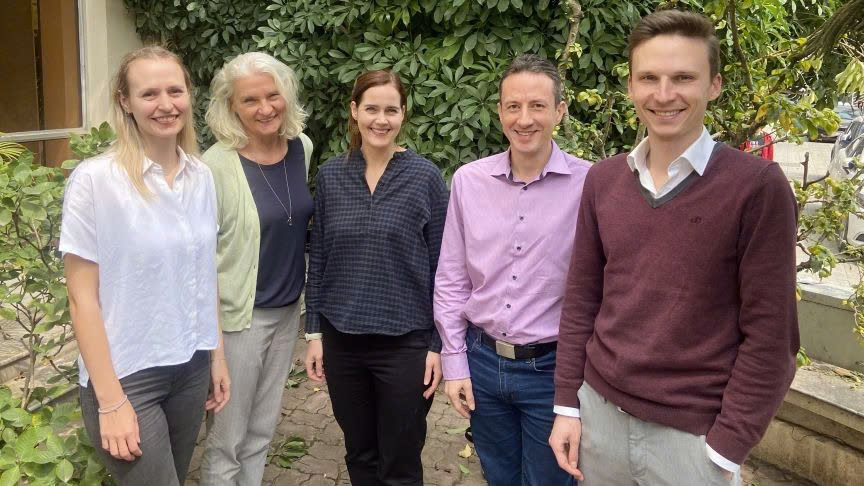 "The HUST Spirit" in German Falcuty
"The HUST Spirit" in German Falcuty
 Experiencing Tet 2026 with International Students at Hanoi...
Experiencing Tet 2026 with International Students at Hanoi...
 Hanoi University of Science and Technology Participates in...
Hanoi University of Science and Technology Participates in...
 Hanoi University of Science and Technology (HUST)...
Hanoi University of Science and Technology (HUST)...
 The DIGITAL MOVE Project Supports the Development of Blended...
The DIGITAL MOVE Project Supports the Development of Blended...
 HUST Sends Love Through Every Drop of Blood
HUST Sends Love Through Every Drop of Blood
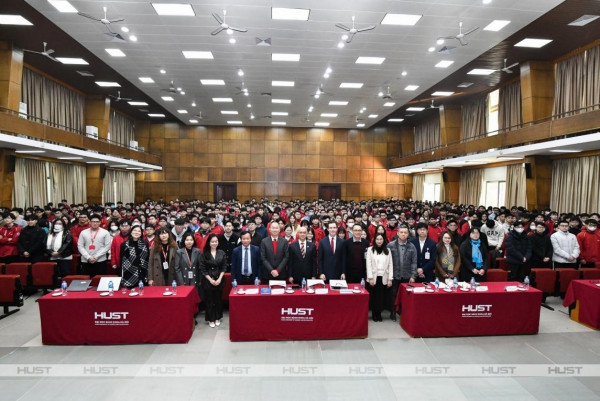 Opportunities to Develop an Artificial Intelligence Society...
Opportunities to Develop an Artificial Intelligence Society...
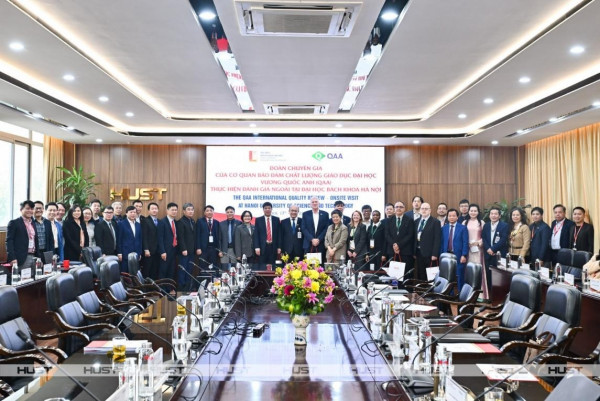 Opening Ceremony for Institutional Quality Accreditation...
Opening Ceremony for Institutional Quality Accreditation...
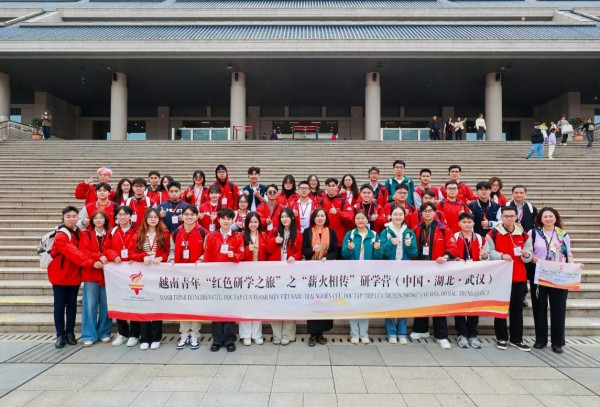 Red Journey 2025: Marks of Knowledge and Aspiration of HUST...
Red Journey 2025: Marks of Knowledge and Aspiration of HUST...